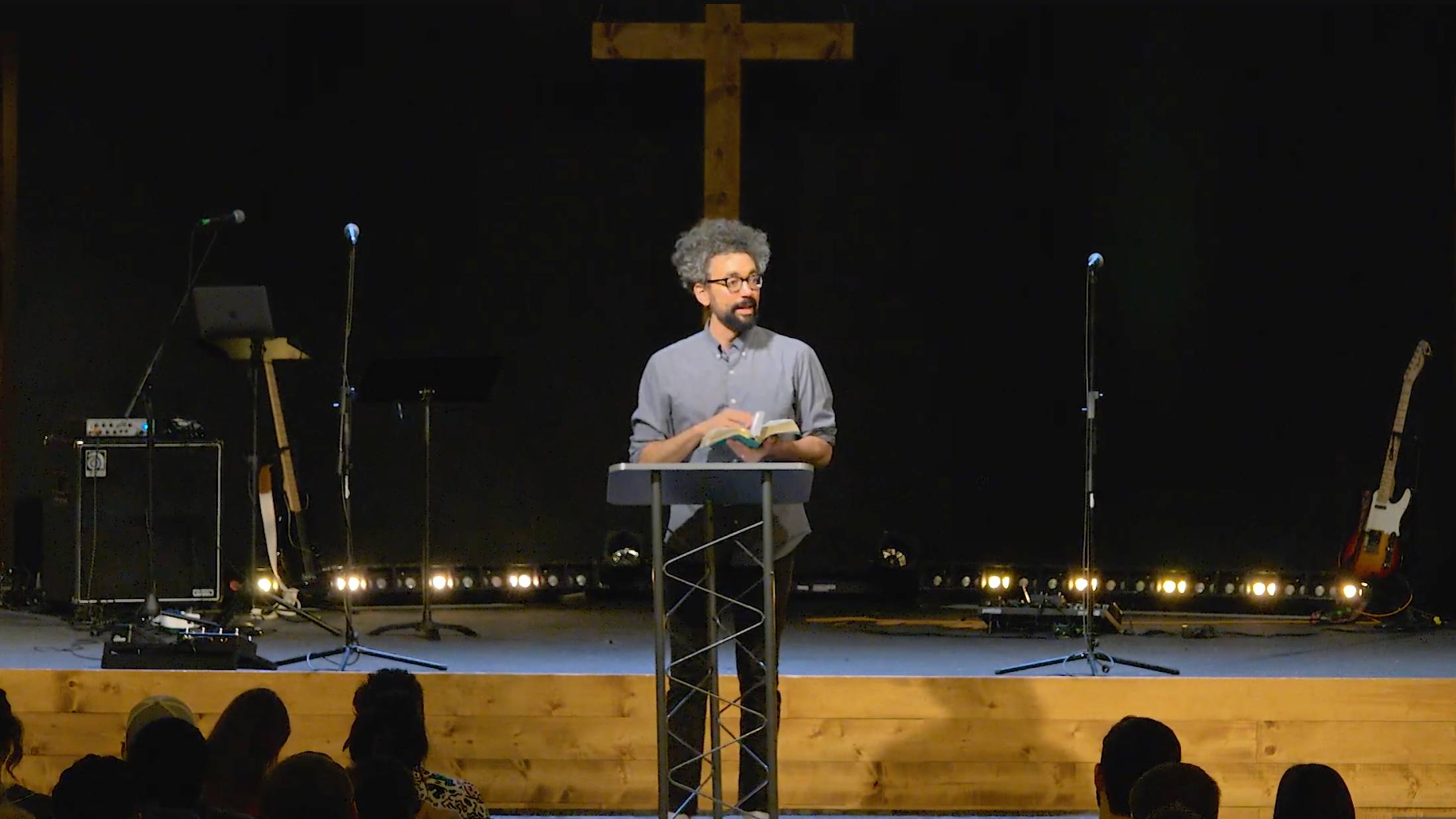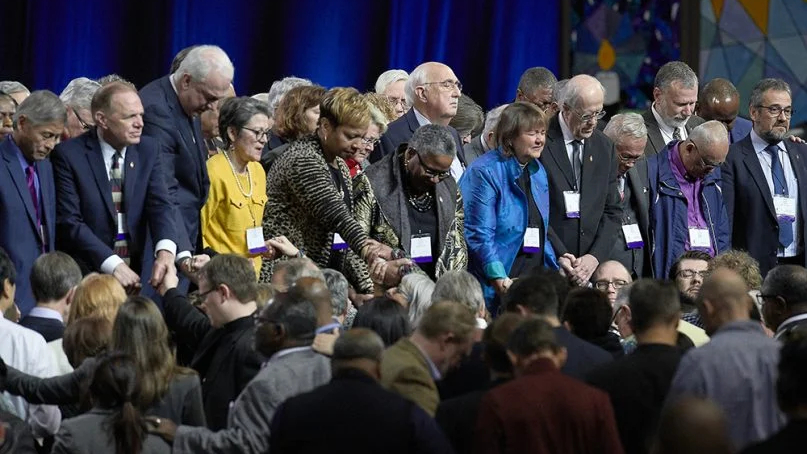One of the reasons it took me five years to write Patron Saints for Postmoderns is the sheer volume of reading necessary to get a handle on the lives of ten complex people. It was worth it—and not just for the book: I discovered some bibliographic treasures along the way.
So, if you’re looking for some excellent historical reads, have I got a line-up for you!
John Comenius: The Labyrinth of the World and The Paradise of the Heart (Classics of Western Spirituality)
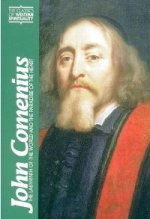 On Easter Sunday, the worship band at Bethel Community Church in Redding, California, opened the service with “This Is Amazing Grace,” a 2012 hit that has remained one of the most popular worship songs of the past decade.
On Easter Sunday, the worship band at Bethel Community Church in Redding, California, opened the service with “This Is Amazing Grace,” a 2012 hit that has remained one of the most popular worship songs of the past decade.Chances are thousands of other churches around the country also sang that song—or one very similar to it.
A new study found that Bethel and a handful of other megachurches have cornered the market on worship music in recent years, churning out hit after hit and dominating the worship charts.
The study looked at 38 songs that made the Top 25 lists for CCLI and PraiseCharts—which track what songs are played in churches—and found that almost all had originated from one of four megachurches.
All the songs in the study—which ranged from “Our God” and “God Is Able” to “The Blessing”— debuted on those charts between 2010 and 2020.
Of the songs in the study, 36 had ties to a group of four churches: Bethel; Hillsong; Passion City Church in Atlanta; and Elevation in North Carolina.
“If you have ever felt like most worship music sounds the same,” the study’s authors wrote, “it may be because the worship music you are most likely to hear in many churches is written by just a handful of songwriters from a handful of churches.”
The research team, made up of two worship leaders and three academics who study worship music, made some initial findings public Tuesday. More details from the study will likely be released in the coming weeks.
Elias Dummer, a worship leader and recording artist, said he and his colleagues have been watching changes in worship music over the past decade. They wanted to know how worship songs become popular among churches, he said. They also wanted to know how the business of producing and marketing songs is shaping the worship life of local churches.
Dummer said many worship leaders believe the best songs become the most popular in churches. They also believe those songs become popular because they work—people respond to them during worship services and want to sing them over and over. But that’s not exactly true. Dummer and his colleagues found many of the more recent hits songs were released as singles on Spotify and other streaming services, which helps fuel their popularity.
“There are actual mechanisms by which songs become the most significant,” he said. “It’s not just whatever songs the Holy Spirit blesses that make it to the top of the charts.”
For their study, researchers compared popular worship songs written before 2010 with those written from 2010 to 2020. Those earlier songs were often associated with individual worship leaders such as Chris Tomlin and Matt Redman, rather than with churches, and came from a variety of sources.
But beginning in 2010, the most popular new songs began to come from megachurch worship bands—and the most popular worship artists began affiliating with those churches.
Of the 38 songs in the study, 22 were initially released by the four megachurches, with another eight songs released by artists affiliated with those churches. Six more were either collaborations between artists from those churches or cover songs performed by those churches.
Shannan Baker, a postdoctoral fellow at Baylor University, said the megachurch worship teams in the study also popularized songs from other artists, such as “Way Maker,” a song written by Sinach, a well-known Nigerian musician, as well as “Great Are You Lord” and “Tremble.”
“These bigger churches, even if they weren’t involved in making the songs, platformed them,” she said.
Adam Perez, assistant professor of worship studies at Belmont University in Nashville, said the four most influential megachurches all come from the charismatic tradition of Protestant churches. All of them, he said, have a spirituality that believes God becomes present in a “meaningful and powerful way” when the congregation sings a particular style of worship song.
Those songs become one of the primary ways of connecting with God—rather than prayer or sacraments or other rituals. Because of their market success, these churches have changed the spiritual practices and sometimes even the theology of congregations from many traditions.
“The industry itself becomes this invisible hand,” he said. “We don’t name the theology of praise and worship—we just assume it. And we use this kind of song repertoire to reinforce it.”
The study did not look specifically at the lyrics of the most popular songs. Baker did say she’s looking at those lyrics for a different project and found a few trends. For example, she said, few of the most popular songs talk about the cross or salvation.
“A lot of it is, what is God doing for me now? And what has God promised to do for me in the future?” she said.
Baker said that in the past, artists or publishers would put out a songbook or recordings of new worship songs, and then churches would pick out the songs in those collections that best fit their context. Now, she and other researchers wonder if these megachurches are driving which songs are used in worship.
The study is based on data about popular worship songs obtained by Mike Tapper, a religion professor at Southern Wesleyan University. Tapper and his colleague Marc Jolicoeur, a worship pastor from New Brunswick, Canada, worked on a previous study about how quickly hit worship songs appear and then disappear.
Jolicoeur said any concerns about the theology of the four megachurches, or the recent troubles at Hillsong, which has had several pastors resign in scandal, don’t seem to affect the demand for their music.
The popularity of megachurch worship songs doesn’t surprise Leah Payne, professor of American religious history at Portland Seminary in Oregon. Payne, who studies the Christian music business, said it likely reflects broader worship patterns. While most churches in the United States are small, most Christians worship at large churches. The 2020 Faith Communities Today survey found that about 70 percent of worshippers attend the top 10 percent of churches.
“The fact that the worship music of megachurches has a bigger share of the worship market corresponds to the practice of worshippers,” said Payne.
Payne doubts that scandals at churches such as Hillsong will affect the popularity of their music—because people have a relationship with the songs, not with church leaders.
Payne said worship bands at the most popular megachurches have a knack for creating great pop songs. And they know how to connect with mass audiences—both in person and through streaming services.
“They can go toe-to-toe with some of the biggest acts in music,” she said.
https://datawrapper.dwcdn.net/1Qhry
John Comenius: The Labyrinth of the World and The Paradise of the Heart (Classics of Western Spirituality) by Howard Louthan, Andrea Sterk
This edition of Comenius’s fascinating allegory has a simply wonderful introduction–one of the best I’ve seen for any historical book. It provides excellent biographical data and demonstrates real insight into Comenius’s life, personality, and work.
The Life & Spirituality of John Newton: An Authentic Narrative (Sources of Evangelical Spirituality)
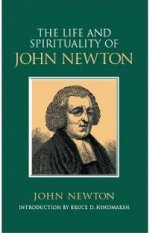 Alberto E. Tamargo / Sipa USA via AP Images
Alberto E. Tamargo / Sipa USA via AP ImagesThe Life & Spirituality of John Newton: An Authentic Narrative (Sources of Evangelical Spirituality) by John Newton, Bruce D. Hindmarsh, Bruce Hindmarsh, Introduction by Bruce Hindmarsh
This edition includes John Newton’s Narrative (his autobiography up to the point of his conversion) and a few of his famed letters of spiritual direction (to the best of my memory). Bruce Hindmarsh, a professor at Regent College, Vancouver, has the only modern critical biography of Newton, listed separately under “books.” Get it, along with John Pollock’s shorter, more popular bio of Newton (also listed but out of print).
John Newton and the English Evangelical Tradition: Between the Conversions of Wesley and Wilberforce
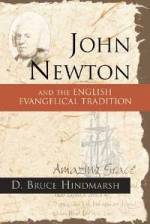 With the US withdrawal from Afghanistan nearly two years ago, religious congregations across the country began extending an embrace to refugees.
With the US withdrawal from Afghanistan nearly two years ago, religious congregations across the country began extending an embrace to refugees.Partnering with resettlement agencies, they helped families escaping war and political turmoil settle into homes, find jobs, learn English and acclimate to life in the US.
Now, in a corner of North Carolina, a group of Baptist churches has begun to deepen that support by retrofitting vacant church-owned buildings—often homes—for refugee housing.
Organized through the Cooperative Baptist Fellowship of North Carolina but open to any religious congregation, a new initiative encourages churches to refurbish church-owned parsonages, office buildings, youth clubhouses, or single-family homes and make them available to refugees or humanitarian parolees for a nominal fee.
“It’s increasingly difficult to find affordable housing for refugees,” said Marc Wyatt, a missionary who founded the Welcome House Community Network. “Churches have physical property and buildings that are underutilized. Rethinking the use of those buildings for housing is our vision.”
Last Saturday, the network held its first housing and hospitality summit with 210 congregational leaders—mostly from North Carolina—wanting to learn more about how to use vacant church properties to minister to refugees.
The conference made plain twin realities: A glut of underutilized church properties and a severe shortage of affordable housing for newly arrived refugees with few means.
So far, about a dozen churches in North Carolina’s Triangle region, anchored by Raleigh, Durham and Chapel Hill, have retrofitted ancillary buildings for use by refugees. In all, about 40, including churches in Virginia, Tennessee and Texas, have joined the Welcome House network.
They include First Baptist Church in Hillsborough, which is housing a seven-member Afghan family in its parsonage, and Temple Baptist Church in Durham, which owns a ranch-style home a few yards away from its sanctuary where an eight-member family from Congo is now staying.
Churches typically charge the families a day to cover the cost of utilities and otherwise provide hospitality and connection.
“A lot of (church) folks like to clean and prep the house,” said Randy Carter, pastor of Temple Baptist. “Some people like to work in repairs or on the yard. A small group of folks are more engaged with the family itself.”
Until recently, many of these church-owned homes had been used by pastors or foreign missionaries on leave. Increasingly, they have stood vacant.
The surge of refugee and humanitarian parole programs under the Biden administration has made affordable housing an urgent need.
Since he took office in January 2021, Biden’s administration has reversed Trump-era restrictions on immigration to the United States. The boost in refugee admissions includes some 300,000 Ukrainians who have arrived in the United States fleeing war with Russia, more than all the people from around the world admitted through the official US refugee program in the last five years.
The Welcome House churches partner with one of 10 US refugee resettlement agencies working to house the immigrants. Those agencies are often scrambling to provide affordable housing for refugees, most of whom come to the US penniless or after yearslong stays in refugee camps. The State Department typically provides only three months’ housing costs, and families must quickly find jobs to stay afloat.
“The rate of arrivals is faster than we can find long-term housing,” said Adam Clark, executive director of World Relief in Durham, one of the resettlement agencies working in North Carolina. “There has to be a temporary housing piece for this to work.”
Clark said some refugees are placed in an extended stay hotel or an Airbnb until housing is found. But those are expensive and they quickly exhaust the government’s minimal housing subsidy.
In most cases, church-owned properties are used on a temporary basis—up to 90 days—at which point the resettlement agencies typically locate to more permanent housing.
But some churches, such as Hayes Barton Baptist Church in Raleigh, which owns three residential homes near its church building, are also renting out properties to refugees on a longer-term lease.
Two of those homes are now occupied by refugee families—one from Morocco and one from Afghanistan (a third house is being renovated). The families pay rent at below fair market value, typically no more than 30 percent of the family’s monthly income.
“We have assets that are sitting here and there are people coming into our community that need housing,” said Kristen Muse, senior associate pastor at Hayes Barton Baptist. “Our congregation is a generous congregation and when they see the needs, they want to reach out and use what we have for the glory of God.”
Both families staying at Hayes Barton’s church homes are Muslim and do not attend church services. But the point of the housing is not to proselytize anyway, Muse said. Instead it’s to extend a welcome. One of the refugee children attends the church’s preschool, and the church keeps in touch and helps support the family as needs arise.
The initiative comes at a time when many older churches are rethinking how to repurpose unused buildings for the common good and at the same time cast a sustainable vision for the future.
Housing refugees is emerging as one solution—one that fits in with many churches’ larger mission of welcoming the stranger.
“How do we do what God wants us to do?” said Randall Austin, a member of First Baptist Church in Hillsborough, which started offering its parsonage to refugees nearly two years ago. “This is a tangible way.”
John Newton and the English Evangelical Tradition: Between the Conversions of Wesley and Wilberforce by D. Bruce Hindmarsh
The only and best modern critical biography of John Newton. This is also a perceptive analysis of the state of evangelicalism in the years between Wesley’s conversion and Wilberforce’s conversion (if memory serves). Bravo, Bruce!
Amazing Grace: John Newton’s Story
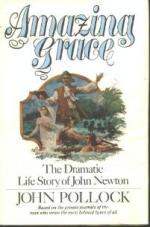 With the US withdrawal from Afghanistan nearly two years ago, religious congregations across the country began extending an embrace to refugees.
With the US withdrawal from Afghanistan nearly two years ago, religious congregations across the country began extending an embrace to refugees.Partnering with resettlement agencies, they helped families escaping war and political turmoil settle into homes, find jobs, learn English and acclimate to life in the US.
Now, in a corner of North Carolina, a group of Baptist churches has begun to deepen that support by retrofitting vacant church-owned buildings—often homes—for refugee housing.
Organized through the Cooperative Baptist Fellowship of North Carolina but open to any religious congregation, a new initiative encourages churches to refurbish church-owned parsonages, office buildings, youth clubhouses, or single-family homes and make them available to refugees or humanitarian parolees for a nominal fee.
“It’s increasingly difficult to find affordable housing for refugees,” said Marc Wyatt, a missionary who founded the Welcome House Community Network. “Churches have physical property and buildings that are underutilized. Rethinking the use of those buildings for housing is our vision.”
Last Saturday, the network held its first housing and hospitality summit with 210 congregational leaders—mostly from North Carolina—wanting to learn more about how to use vacant church properties to minister to refugees.
The conference made plain twin realities: A glut of underutilized church properties and a severe shortage of affordable housing for newly arrived refugees with few means.
So far, about a dozen churches in North Carolina’s Triangle region, anchored by Raleigh, Durham and Chapel Hill, have retrofitted ancillary buildings for use by refugees. In all, about 40, including churches in Virginia, Tennessee and Texas, have joined the Welcome House network.
They include First Baptist Church in Hillsborough, which is housing a seven-member Afghan family in its parsonage, and Temple Baptist Church in Durham, which owns a ranch-style home a few yards away from its sanctuary where an eight-member family from Congo is now staying.
Churches typically charge the families a day to cover the cost of utilities and otherwise provide hospitality and connection.
“A lot of (church) folks like to clean and prep the house,” said Randy Carter, pastor of Temple Baptist. “Some people like to work in repairs or on the yard. A small group of folks are more engaged with the family itself.”
Until recently, many of these church-owned homes had been used by pastors or foreign missionaries on leave. Increasingly, they have stood vacant.
The surge of refugee and humanitarian parole programs under the Biden administration has made affordable housing an urgent need.
Since he took office in January 2021, Biden’s administration has reversed Trump-era restrictions on immigration to the United States. The boost in refugee admissions includes some 300,000 Ukrainians who have arrived in the United States fleeing war with Russia, more than all the people from around the world admitted through the official US refugee program in the last five years.
The Welcome House churches partner with one of 10 US refugee resettlement agencies working to house the immigrants. Those agencies are often scrambling to provide affordable housing for refugees, most of whom come to the US penniless or after yearslong stays in refugee camps. The State Department typically provides only three months’ housing costs, and families must quickly find jobs to stay afloat.
“The rate of arrivals is faster than we can find long-term housing,” said Adam Clark, executive director of World Relief in Durham, one of the resettlement agencies working in North Carolina. “There has to be a temporary housing piece for this to work.”
Clark said some refugees are placed in an extended stay hotel or an Airbnb until housing is found. But those are expensive and they quickly exhaust the government’s minimal housing subsidy.
In most cases, church-owned properties are used on a temporary basis—up to 90 days—at which point the resettlement agencies typically locate to more permanent housing.
But some churches, such as Hayes Barton Baptist Church in Raleigh, which owns three residential homes near its church building, are also renting out properties to refugees on a longer-term lease.
Two of those homes are now occupied by refugee families—one from Morocco and one from Afghanistan (a third house is being renovated). The families pay rent at below fair market value, typically no more than 30 percent of the family’s monthly income.
“We have assets that are sitting here and there are people coming into our community that need housing,” said Kristen Muse, senior associate pastor at Hayes Barton Baptist. “Our congregation is a generous congregation and when they see the needs, they want to reach out and use what we have for the glory of God.”
Both families staying at Hayes Barton’s church homes are Muslim and do not attend church services. But the point of the housing is not to proselytize anyway, Muse said. Instead it’s to extend a welcome. One of the refugee children attends the church’s preschool, and the church keeps in touch and helps support the family as needs arise.
The initiative comes at a time when many older churches are rethinking how to repurpose unused buildings for the common good and at the same time cast a sustainable vision for the future.
Housing refugees is emerging as one solution—one that fits in with many churches’ larger mission of welcoming the stranger.
“How do we do what God wants us to do?” said Randall Austin, a member of First Baptist Church in Hillsborough, which started offering its parsonage to refugees nearly two years ago. “This is a tangible way.”
Amazing Grace: John Newton’s Story by John Pollock
A potboiling popular biography of John Newton. Easy to read in one sitting.
The Mind of the Maker
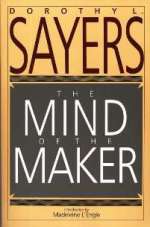 Courtesy of Yonat Shimron at Religion News Service
Courtesy of Yonat Shimron at Religion News ServiceThe Mind of the Maker by Dorothy L. Sayers
A truly fascinating thesis about the image of the Trinity in the human creative process.
Gaudy Night (Lord Peter Wimsey Mystery)
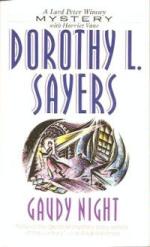 An evangelical Christian pastor and author whose book on the theology of sex caused a furor online earlier this spring resigned Wednesday from the leadership of his Arizona megachurch.
An evangelical Christian pastor and author whose book on the theology of sex caused a furor online earlier this spring resigned Wednesday from the leadership of his Arizona megachurch.“We have found ourselves in an impossible situation,” Joshua Butler wrote to members of Redemption Church in Tempe in announcing his resignation. A copy of the letter was posted on social media. His photo and bio no longer appear on the church’s website.
Butler’s new book, Beautiful Union, which argues that “God’s vision for sex” explains the meaning of life, was controversial even before it was released in April.
In March, an excerpt of the book appeared on the website of the influential church resource organization The Gospel Coalition. In the excerpt, titled “Sex Won’t Save You (But It Points to the One Who Will),” Butler offered repeated descriptions of sexual intercourse in spiritual terms, most of them characterizing sex as a man bestowing a holy gift to a woman and comparing that to the relationship of Jesus and the church.
“She gladly receives the warmth of his presence and accepts the sacrificial offering he bestows upon the altar within her Most Holy Place,” wrote Butler. “Similarly, the church embraces Christ in salvation, celebrating his arrival with joy and delight.”
The excerpt led to public outcry, claiming Butler’s writing contained not only bad theology but an oversexed view of religion centered on male pleasure. While the excerpt did quote from the New Testament’s Letter of Paul to the Ephesians, theology professor Beth Felker Jones, among others, argued Butler had missed the point of the passages he addressed.
“But the piece does not dig into Ephesians, paying close attention to the text,” wrote Jones. “Instead, it turns into a rhapsody over a very male-centered experience of sexual intercourse.”
The Gospel Coalition removed the article days after it was posted, replacing it with an apology and a note that Butler had resigned as a fellow with the Keller Center for Cultural Apologetics, a project of The Gospel Coalition, named for popular author and retired pastor Tim Keller. Butler’s ties to the center amplified the controversy over the book.
In his church resignation letter, Butler said “the toll of this controversy on many of our staff and leaders this month has been intense.” Butler and other elders at the church decided it would be best for him to step down, according to the letter.
Resigning, he said, would allow him to take part in “public conversations” about his book without harming the church.
Those public conversations have taken place even as Butler contemplated his resignation. He continued to promote the book on his personal website, publishing another article related to the book, titled “The Ethics of Contraception,” that also created controversy.
“A condom dams up the ‘river of life,’ preventing its life-giving waters from reaching the opposite shore,” Butler wrote. “With a diaphragm, a barrier is placed at the most intimate point of contact, preventing a full reception of the gift within the generative holy space of the womb.”
Butler also said he would be revising a future printing of the book in light of feedback he has received and he would be available to speak with church members who felt angered or hurt because of the controversy.
Gaudy Night (Lord Peter Wimsey Mystery) by Dorothy L. Sayers
Her best novel (please don’t write me nasty emails, all you fans of The Nine Tailors. That novel just contains far more details than I ever wanted to know about bell-ringing [“campanology”]!) Set at a women’s college of Oxford, this novel is “about” intellectual integrity. But that doesn’t spoil the fun at all! As usual, she plots brilliantly. Here the focus shifts from Lord Peter Wimsey to Harriet Vane, and the relationship between those two heats up. There’s a lot of Dorothy in these pages . . .
Letters to a Diminished Church : Passionate Arguments for the Relevance of Christian Doctrine
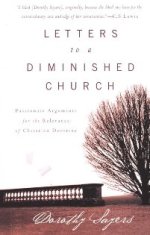 An evangelical Christian pastor and author whose book on the theology of sex caused a furor online earlier this spring resigned Wednesday from the leadership of his Arizona megachurch.
An evangelical Christian pastor and author whose book on the theology of sex caused a furor online earlier this spring resigned Wednesday from the leadership of his Arizona megachurch.“We have found ourselves in an impossible situation,” Joshua Butler wrote to members of Redemption Church in Tempe in announcing his resignation. A copy of the letter was posted on social media. His photo and bio no longer appear on the church’s website.
Butler’s new book, Beautiful Union, which argues that “God’s vision for sex” explains the meaning of life, was controversial even before it was released in April.
In March, an excerpt of the book appeared on the website of the influential church resource organization The Gospel Coalition. In the excerpt, titled “Sex Won’t Save You (But It Points to the One Who Will),” Butler offered repeated descriptions of sexual intercourse in spiritual terms, most of them characterizing sex as a man bestowing a holy gift to a woman and comparing that to the relationship of Jesus and the church.
“She gladly receives the warmth of his presence and accepts the sacrificial offering he bestows upon the altar within her Most Holy Place,” wrote Butler. “Similarly, the church embraces Christ in salvation, celebrating his arrival with joy and delight.”
The excerpt led to public outcry, claiming Butler’s writing contained not only bad theology but an oversexed view of religion centered on male pleasure. While the excerpt did quote from the New Testament’s Letter of Paul to the Ephesians, theology professor Beth Felker Jones, among others, argued Butler had missed the point of the passages he addressed.
“But the piece does not dig into Ephesians, paying close attention to the text,” wrote Jones. “Instead, it turns into a rhapsody over a very male-centered experience of sexual intercourse.”
The Gospel Coalition removed the article days after it was posted, replacing it with an apology and a note that Butler had resigned as a fellow with the Keller Center for Cultural Apologetics, a project of The Gospel Coalition, named for popular author and retired pastor Tim Keller. Butler’s ties to the center amplified the controversy over the book.
In his church resignation letter, Butler said “the toll of this controversy on many of our staff and leaders this month has been intense.” Butler and other elders at the church decided it would be best for him to step down, according to the letter.
Resigning, he said, would allow him to take part in “public conversations” about his book without harming the church.
Those public conversations have taken place even as Butler contemplated his resignation. He continued to promote the book on his personal website, publishing another article related to the book, titled “The Ethics of Contraception,” that also created controversy.
“A condom dams up the ‘river of life,’ preventing its life-giving waters from reaching the opposite shore,” Butler wrote. “With a diaphragm, a barrier is placed at the most intimate point of contact, preventing a full reception of the gift within the generative holy space of the womb.”
Butler also said he would be revising a future printing of the book in light of feedback he has received and he would be available to speak with church members who felt angered or hurt because of the controversy.
Letters to a Diminished Church : Passionate Arguments for the Relevance of Christian Doctrine by Dorothy Sayers
Excellent introduction to Sayers’s apologetic work, for a new generation. Contains some of her best essays.
The Divine Comedy – Hell
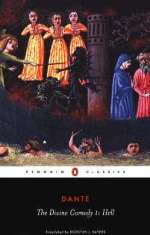 Screengrab / Redemption Church
Screengrab / Redemption ChurchThe Divine Comedy – Hell by Dante Alighieri, Dorothy L. Sayers
If you haven’t read The Divine Comedy by Dante Alighieri yet, you owe it to yourself to do so. What a wonderful tale, and what wonderful poetry! Sayers’s translation sparkles, and her notes are legendary.
The Passionate Intellect: Dorothy L. Sayers’ Encounter with Dante
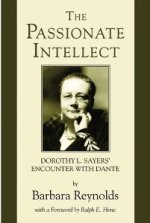 United Methodist bishops have proposed a five-day meeting of the denomination’s global decision-making body, the General Conference, in May 2026.
United Methodist bishops have proposed a five-day meeting of the denomination’s global decision-making body, the General Conference, in May 2026.The announcement comes at the end of the Council of Bishops’ spring meeting last week in Chicago and a weekend that saw hundreds of United Methodist churches in the United States leave the denomination.
The 2026 General Conference would focus on re-establishing connection within the United Methodist Church, lamenting, healing and recasting the mission and vision for the mainline denomination after years of strife over the ordination and marriage of its LGBT members, according to a press release published Monday (May 8) on the Council of Bishops’ website.
Delegates to the General Conference also would consider a more regional governance structure to better support the remaining denomination, which currently numbers about 30,000 U.S. churches.
“I admit to you I’m eager to get past all this. I want us to stop talking about disaffiliations,” Bishop Thomas Bickerton, president of the Council of Bishops, said during the bishops’ meeting, which ran April 30 to May 5.
“I’m worried genuinely that we’ve spent more time on those that are leaving than focusing our energy on those who are staying.”
Delegates to the 2020 General Conference meeting had been expected to consider a proposal to split the denomination over its disagreement on sexuality and help create a new, theologically conservative denomination called the Global Methodist Church. That would allow the United Methodist Church to change language in its Book of Discipline that bars same-sex marriages and LGBT clergy.
When the 2020 meeting was postponed a third time for pandemic-related reasons, the Global Methodist Church went ahead and launched last year. To date, about 2,000 churches have joined the new denomination.
More recently, United Methodists’ top court, the Judicial Council, ruled that the General Conference meeting set for April 23 to May 3, 2024, in Charlotte, North Carolina, should be considered the postponed 2020 meeting. Because those meetings must be held once in four years, the court also ruled that the denomination must hold another meeting afterward to take the place of what would have been the 2024 meeting before the next regularly scheduled session in 2028.
The bishops’ request to hold that meeting in May 2026 now goes to the Commission on the General Conference to set the date.
Meanwhile, over the weekend, at least seven annual conferences met to approve disaffiliation requests from more than 300 churches within their boundaries. The number will likely go up as final votes are still being tallied from the Western North Carolina conference, according to United Methodist News Service.
To date, at least 2,804 churches have left the United Methodist Church since 2019—up from 2,000 at the end of last year—according to UMNS. That’s when a special session of the General Conference approved a disaffiliation plan allowing churches to vote to leave over “reasons of conscience” related to sexuality, while keeping their properties if they pay certain pensions and apportionments.
More disaffiliations are expected as annual conferences hold their regular meetings this summer. Some have scheduled special sessions later this year expressly to approve requests from their churches to disaffiliate.
The disaffiliation plan sunsets on Dec. 31, and Bickerton told the Council of Bishops last week that the new year would begin a “period of jubilee” for the denomination.
“This season of disaffiliations must come to a close if we ever hope to refocus our attention on the mission and ministry opportunities that are before us. This has been our work, is our work, but cannot remain our work,” he said.
The Passionate Intellect: Dorothy L. Sayers’ Encounter with Dante by Ralph E. Hone, Barbara Reynolds
This warm portrait of a Christian mind in love with creativity, clarity, and truth is unsurpassed. Reynolds was a close friend of Sayers and finished Sayers’s hugely popular Penguin translation of the Divine Comedy. Reynolds is also the editor of Sayers’s letters and the author of a wonderful biography of Sayers. If you want to fall in love with the Christian life of the mind, there’s no better beginning. Or if you would just like to enter the world of a rambunctious, opinionated, deeply devoted but no-bull Christian woman who also happens to have been a first-rate scholar, apologist, dramatist, mystery novelist, and essayist on many topics, then this is a great place to do it. I couldn’t put it down.
The Book of Margery Kempe
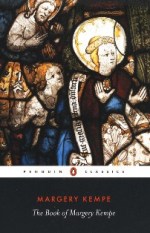 United Methodist bishops have proposed a five-day meeting of the denomination’s global decision-making body, the General Conference, in May 2026.
United Methodist bishops have proposed a five-day meeting of the denomination’s global decision-making body, the General Conference, in May 2026.The announcement comes at the end of the Council of Bishops’ spring meeting last week in Chicago and a weekend that saw hundreds of United Methodist churches in the United States leave the denomination.
The 2026 General Conference would focus on re-establishing connection within the United Methodist Church, lamenting, healing and recasting the mission and vision for the mainline denomination after years of strife over the ordination and marriage of its LGBT members, according to a press release published Monday (May 8) on the Council of Bishops’ website.
Delegates to the General Conference also would consider a more regional governance structure to better support the remaining denomination, which currently numbers about 30,000 U.S. churches.
“I admit to you I’m eager to get past all this. I want us to stop talking about disaffiliations,” Bishop Thomas Bickerton, president of the Council of Bishops, said during the bishops’ meeting, which ran April 30 to May 5.
“I’m worried genuinely that we’ve spent more time on those that are leaving than focusing our energy on those who are staying.”
Delegates to the 2020 General Conference meeting had been expected to consider a proposal to split the denomination over its disagreement on sexuality and help create a new, theologically conservative denomination called the Global Methodist Church. That would allow the United Methodist Church to change language in its Book of Discipline that bars same-sex marriages and LGBT clergy.
When the 2020 meeting was postponed a third time for pandemic-related reasons, the Global Methodist Church went ahead and launched last year. To date, about 2,000 churches have joined the new denomination.
More recently, United Methodists’ top court, the Judicial Council, ruled that the General Conference meeting set for April 23 to May 3, 2024, in Charlotte, North Carolina, should be considered the postponed 2020 meeting. Because those meetings must be held once in four years, the court also ruled that the denomination must hold another meeting afterward to take the place of what would have been the 2024 meeting before the next regularly scheduled session in 2028.
The bishops’ request to hold that meeting in May 2026 now goes to the Commission on the General Conference to set the date.
Meanwhile, over the weekend, at least seven annual conferences met to approve disaffiliation requests from more than 300 churches within their boundaries. The number will likely go up as final votes are still being tallied from the Western North Carolina conference, according to United Methodist News Service.
To date, at least 2,804 churches have left the United Methodist Church since 2019—up from 2,000 at the end of last year—according to UMNS. That’s when a special session of the General Conference approved a disaffiliation plan allowing churches to vote to leave over “reasons of conscience” related to sexuality, while keeping their properties if they pay certain pensions and apportionments.
More disaffiliations are expected as annual conferences hold their regular meetings this summer. Some have scheduled special sessions later this year expressly to approve requests from their churches to disaffiliate.
The disaffiliation plan sunsets on Dec. 31, and Bickerton told the Council of Bishops last week that the new year would begin a “period of jubilee” for the denomination.
“This season of disaffiliations must come to a close if we ever hope to refocus our attention on the mission and ministry opportunities that are before us. This has been our work, is our work, but cannot remain our work,” he said.
The Book of Margery Kempe by Margery Kempe
Margery is a trip. She wrote–and is the subject of–the first biography in the English language. Windeatt’s Penguin edition is the one to have. Don’t get the Image Books edition. She’s no “madwoman” or even “mystic”–just a laywoman intensely in love with God who knows a lot about praying through tough situations. We can learn from reading her book.
St. Gregory the Great, Pastoral Care (Ancient Christian Writers)
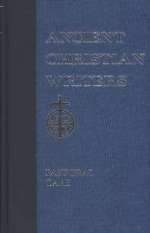 Courtesy of Paul Jeffrey/UMNS
Courtesy of Paul Jeffrey/UMNSSt. Gregory the Great, Pastoral Care (Ancient Christian Writers) by Henry Davis
Here’s a great early manual for pastors. Until recently, it was given to all bishops in the Catholic Church. Just as sensitive to the complexity of human character(s) as Benedict’s Rule, but geared for the pastor rather than the abbot. Gregory itemizes dozens of kinds of people in a congregation and talks about how to minister effectively to each.
An Autobiography: The Story of the Lord’s Dealings with Mrs Amanda Smith the Colored Evangelist (Schomburg Library of Nineteenth-Century Black Women)
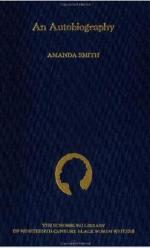 In what could be a sign of COVID-19’s influence, some sectors of US society—specifically white evangelicals and Republicans—are showing a growing aversion to the requirement that schoolchildren be vaccinated for illnesses like mumps and measles.
In what could be a sign of COVID-19’s influence, some sectors of US society—specifically white evangelicals and Republicans—are showing a growing aversion to the requirement that schoolchildren be vaccinated for illnesses like mumps and measles.Overall, about 70 percent of Americans say healthy children should be mandated to be vaccinated so they can attend public schools, according to a new Pew Research Center survey released Tuesday.
That is a distinctly smaller percentage from findings in 2019 and 2016, when 82 percent were in favor of such requirements. The share of the US public who say parents should get to determine not to vaccinate their children is 28 percent, an increase of 12 points from 2019.
“We are seeing a kind of marked drop in support for school-based childhood vaccine requirements,” said Cary Funk, Pew’s director of science and society research, in an interview. “That drop is particularly coming among Republicans as well as among white evangelical Protestants, many of whom are Republicans.”
The new survey shows that 58 percent of white evangelicals say there should be a requirement for children attending public schools to be vaccinated, while 40 percent say parents should be able to choose not to have their children vaccinated, even if that could cause health risks for others. Comparatively, in 2019, white evangelicals favored mandated vaccines for public schoolchildren by a margin of 77 percent to 20 percent.
Even though white evangelicals have a growing opposition to such requirements, they remain supportive of measles, mumps and rubella vaccines, Funk said. The report notes that 82% of white evangelicals who are parents of minors say their child has received such vaccines, close to the percentage of the share of all parents who say this (79%).
Funk noted that being “inclined away from school-based vaccine requirements is different than saying that the vaccines themselves are not safe or effective.”
https://datawrapper.dwcdn.net/F8Bcr
Eighty-seven percent of Protestants overall say this, and more than 8 in 10 of different kinds of Protestants agreed: 93 percent of white nonevangelicals, 87 percent of white evangelicals, and 82 percent of Black Protestants. Overall 89 percent of Catholics held this view, with 94 percent of white Catholics agreeing, as well as 83 percent of Hispanic Catholics.
A higher percentage of the religiously unaffiliated—91 percent—saw benefits of MMR vaccines outweighing risks, with 96 percent of atheists, 95 percent of agnostics, and 88 percent of those who described themselves as “nothing in particular” holding this view.
Compared to white evangelicals, lower percentages of all other surveyed religious groups were in favor of parents being able to decide not to vaccinate their children, even if such action would create health risks for others.
About 2 in 10 white nonevangelicals, Black Protestants, and Hispanic Catholics held this view, compared to a quarter of white Catholics, 10 percent of atheists, and 18 percent of agnostics. But 30 percent of people who described themselves as nothing in particular agreed that parents should be able to make decisions about childhood vaccinations.
White evangelical Protestants are the only religious group surveyed that had fewer than half—40 percent—agreeing that the benefits of COVID-19 vaccines outweigh the risks. Other groups seeing benefits of the recent vaccines outweighing the risks ranged from 60 percent of white nonevangelicals and those who are “nothing in particular” to 84 percent of atheists.
White evangelical Protestants, who were noted earlier in the pandemic for their vaccine hesitancy, stood out as the group that most reported not being vaccinated, at 36 percent. The subgroups with the highest percentages saying they are fully vaccinated and recently boosted were atheists (52%), agnostics (44%) and Black Protestants (43%).
Overall, 34 percent of US adults are fully vaccinated for COVID-19 and recently boosted, and 21 percent had not been vaccinated.
The survey of 10,701 US adults was conducted online from March 13-19 and had an overall margin of error of plus or minus 1.4 percentage points. The margin of error for the 1,669 white evangelical Protestants surveyed was plus or minus 3.4 percentage points.
An Autobiography: The Story of the Lord’s Dealings with Mrs Amanda Smith the Colored Evangelist (Schomburg Library of Nineteenth-Century Black Women) by Amanda Smith, Amanda B. Smith
There’s no form like the autobiography to usher you into the life and world of the writer. This one, by an ex-slave evangelist from the nineteenth century, opens up the world of that century’s holiness revival. Amanda Berry Smith (1837-1915) traveled to many of the Northeastern U.S.’s Victorian-era holiness camp meetings, where she ministered with wisdom and forcefulness to thousands of whites (and a few African Americans) who were willing to hear her as a messenger of God. She encountered racism and sexism along the way, and she is frank about her own fears about exposing herself to the ridicule of powerful Christian leaders white and (painfully) black. But the overwhelming sense we get is of a woman both entirely dedicated to her Lord and gifted by him for extraordinary ministry.



